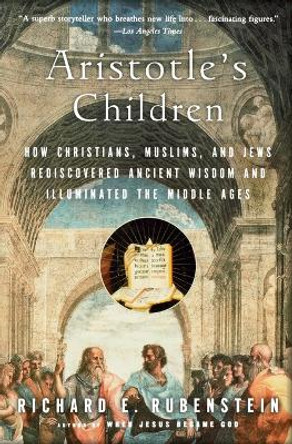Description
The idea of punishment after death-whereby the souls of the wicked are consigned to Hell (Gehenna, Gehinnom, or Jahannam)-emerged out of beliefs found across the Mediterranean, from ancient Egypt to Zoroastrian Persia, and became fundamental to the Abrahamic religions. Once Hell achieved doctrinal expression in the New Testament, the Talmud, and the Qur'an, thinkers began to question Hell's eternity, and to consider possible alternatives-hell's rivals. Some imagined outright escape, others periodic but temporary relief within the torments. One option, including Purgatory and, in the Eastern Orthodox tradition, the Middle State, was to consider the punishments to be temporary and purifying. Despite these moral and theological hesitations, the idea of Hell has remained a historical and theological force until the present.In Hell and Its Rivals, Alan E. Bernstein examines an array of sources from within and beyond the three Abrahamic faiths-including theology, chronicles, legal charters, edifying tales, and narratives of near-death experiences-to analyze the origins and evolution of belief in Hell. Key social institutions, including slavery, capital punishment, and monarchy, also affected the afterlife beliefs of Jews, Christians, and Muslims. Reflection on hell encouraged a stigmatization of "the other" that in turn emphasized the differences between these religions. Yet, despite these rivalries, each community proclaimed eternal punishment and answered related challenges to it in similar terms. For all that divided them, they agreed on the need for-and fact of-Hell.
About the Author
Alan E. Bernstein is Emeritus Professor of Medieval History at the University of Arizona. He is the author of The Formation of Hell.
Reviews
Alan Bernstein's expertise is on full display in this volume.... Bernstein displays absolute command of Christian conceptions of hell from 400 to 800 CE, the primary focus of this volume. Hell and Its Rivals provides apparently comprehensive coverage of Latin works about hell from this period, and the book will no doubt be indispensable for future research on these sources.... Bernstein's presentation of Latin texts is masterful.
* Journal of the American Academy of Religion *The advantage of a relatively comparative study on the subject, he argues fairly, is that it helps us to push past the idea of hell as a 'biblical' concept, and towards seeing it as a much-contested idea that had different resonances across cultures and depending on context. His modus operandi...is...traditional, with readable recitations of what key sources say to evoke important moments in the history of an idea. Bernstein's brief conclusion offers an effective recap of key ideas.'Hell survives', he argues, 'because it is socially useful'. For highlighting interesting points of comparison between different religious cultures, on the other hand, I think scholars will find parts of Bernstein's study useful.
-- James Palmer, University of St Andrews * Early Medieval Europe *This [book] allows readers to realize that hell in Christianity, Judaism, and Islam is not just an everlasting realm of punishment after a literal death. Instead, hell is a result of negotiations and contestations within individual Abrahamic religious communities.... Hell and Its Rivals is a useful addition to eschatological study. It forces us to rethink the fixed and variable natures of hell, and it also points the way for detailed and engaged comparative study.
* American Historical Review *Hell and Its Rivals is a tour de force of comparative religious history. With its wide chronological scope and geographical purview, it provides an unparalleled examination of teachings about the punitive afterlife in early medieval monotheistic faith systems
* Speculum *Book Information
ISBN 9781501707803
Author Alan E. Bernstein
Format Hardback
Page Count 408
Imprint Cornell University Press
Publisher Cornell University Press
Weight(grams) 907g
Dimensions(mm) 229mm * 152mm * 33mm







